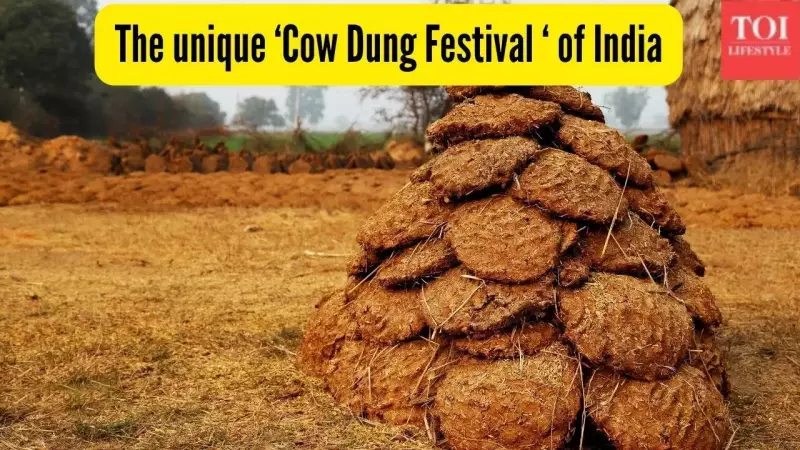
In the border village of Gumatapura in Tamil Nadu's Erode district, an extraordinary festival transforms the conventional understanding of celebration. Gorehabba, popularly known as the cow dung festival, offers a unique ritual where participants joyfully throw cow dung at each other as a sacred tradition marking the end of Diwali festivities.
The Sacred Origins of Gorehabba
This unusual celebration finds its roots in deep spiritual beliefs centered around the local deity Beereshwara Swamy, considered an avatar of Lord Shiva. According to local tradition, Beerappa was born from cow dung, which explains the central role this material plays in the festival. The Kuruba community primarily celebrates this day, maintaining a tradition that spans generations.
Villagers firmly believe that the cow dung used in the festival possesses sacred, purifying, and healing properties. Many participants claim it can cure diseases, drawing from ancient Indian traditions that incorporate cow dung in Vedic practices like panchagavya.
How Gorehabba Unfolds
The festival commences on the day following Deepavali at the village temple dedicated to Beerappa. After morning rituals, villagers collect fresh cow dung from surrounding cattle sheds and gather in an open ground for the main event. What follows is an hour-long cow dung fight that resembles Spain's famous La Tomatina festival, but with a distinctly Indian spiritual twist.
Around noon, enthusiastic men from the village form groups around a central pile of cow dung paste. The atmosphere fills with laughter and excitement as participants engage in the ritual throwing. This unique celebration serves as a powerful social equalizer, temporarily erasing caste barriers and bringing together people from both Tamil Nadu and Karnataka.
Cultural Significance and Tourist Appeal
Gorehabba represents more than just an unusual festival—it embodies community unity and cultural identity. The event sees participation across generations, with both young and old joining the festivities. Migrants often return to their village specifically to partake in this unique cultural experience.
For travelers seeking authentic, offbeat Indian festivals, Gorehabba offers a rare glimpse into rural traditions. The festival has gained attention from national and international media, becoming a photographer's dream despite the unconventional subject matter. Visitors are advised to seek permission before photographing, especially women participants.
The village of Gumatapura in Talavadi, situated on the Tamil Nadu-Karnataka border, becomes the epicenter of this celebration annually. The predominantly Kannada-speaking village welcomes visitors from both states, creating a cross-cultural experience that highlights India's diverse traditions.
Planning Your Visit
Gorehabba occurs the day after Diwali each year, with dates varying according to the Hindu lunar calendar. The nearest major cities are Mysuru (approximately 80-90 km away on the Karnataka side) and Erode (around 70-80 km away on the Tamil Nadu side). Travelers can reach Talavadi by taxi or local bus from either city, then proceed to Gumatapura.
This extraordinary festival continues to draw curious travelers and cultural enthusiasts, offering a memorable experience that combines faith, folklore, and community bonding in a way that's uniquely Indian.






